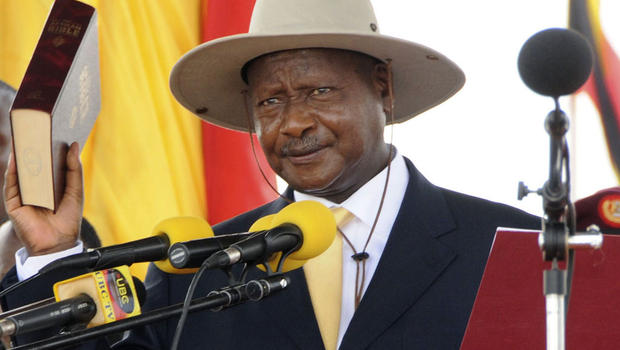Government's proposed land law amendments are unjust

President Museveni’s government wants to change the law to allow prospective investors in the mining industry to access private land that contains minerals without negotiating with the land-owners. His argument is that minerals in the soil belong to the government and that the people occupying the land have no say in the matter. The people must resist such tyranny.
The Prime Minister [Katikoro] of Buganda Kingdom was recently quoted as saying, “We are going to reject that law. Taking people’s land without their consent is an abuse of people’s rights on land, which we shall not accept”. We all know that Katikiro is the leader or otherwise the administrative head of the affairs of Buganda Kingdom. His opinion is not only that of his Cabinet, or of the King, but is presumably also the position of all the subjects of the Kingdom. With this therefore, the emphatic use of the word “we” in Katikiro Charles Peter Mayiga’s statement is not a slip of the tongue but a sign of the numerical strength of the populace opposed to the government proposal to change Land Laws
One could wonder why the good Katikiro is at the centre of opposing the proposal for amendments in the legal framework governing land in Uganda. My guess is that, it’s because the government wishes to unconstitutionally start taking over private land with neither consent nor compensation of the land-owner, until further notice.
The genesis of this matter can be traced back to the National Conference on Mineral Wealth held in October 2014, where the president categorically said that government would change the law to allow intending investors in the mining industry to access private land that contains minerals without negotiating with the land-owners. His rationale for this was that “The people who have to give you consent are the people who own the minerals, and that is the government. The other man [landowner] has no consent to give because the property is not his”, said President Museveni.
This government proposal to amend Article 26 of the Constitution on property rights was also reiterated that year by the then Minister for Investment Mr. Gabriel Ajedra. However for some reason, the article was never amended in the Constitution (Amendment) Act, 2015, only to have this politically contentious issue resurrect during a Cabinet retreat in Kyankwanzi, just months after the 2016 General Elections. Thanks to the Lands Minister Betty Amongi.
The timing, and authoritative approach in which government is pushing for the amendments merits the defensive response from the general public. Currently, cases of evictions from land have become more frequent due to the increased demand for land. These evictions are even more threatening for rural Ugandans who communally own land or unregistered land. The anger and defensive attitude has continued to manifest through incidents such as Karamajong Elders and Youths frustrating mining activities in Karamoja over land, the nude protests in Amuru, up to the more recent threats to lynch the Anglican archbishop in Mukono over the Uganda Christian University Land. Not to mention the fact that there are over 4,000 Ugandans living in Internally Displaced Peoples Camps in the oil-rich Hoima, due to development induced evictions.
Development induced land acquisition has been on the rise across the country and this can only get worse given the ambitious development targets that the government has set. The National Development Plan 2 (NDP II) whose aim is to attain lower middle income status by 2020, contains many infrastructural development projects such as Roads, Railways, Airports, Power dams, Refineries, oil pipelines etc. These are bound to increase pressure on land across the country hence increasing human displacement.
I believe that passing such a draconian amendment to the Constitution and other land laws will deprive Uganda’s Land Rights Movement of over two decades worth of achievement. The milestones in the legal regime governing land include the 1995 Constitution, four progressive amendments to the Land Act, Cap 227 (1998, 2001, 2004 & 2010); and the recent Supreme Court decision in the case of UNRA Vs Asuman Irumba and another (2014), where the highest court in the land unequivocally pronounced itself on the need for free, prior and informed consent as well as compensation before compulsory acquisition of land by Government. This judgment was in respect to Section 7 of the Land Acquisition Act, Cap 226. I thus implore government not to flush 20 years of progress down the drain.
* James Muhindo, a Ugandan lawyer and human rights advocate, is a Project Officer at Global Rights Alert.
* THE VIEWS OF THE ABOVE ARTICLE ARE THOSE OF THE AUTHOR AND DO NOT NECESSARILY REFLECT THE VIEWS OF THE PAMBAZUKA NEWS EDITORIAL TEAM
* BROUGHT TO YOU BY PAMBAZUKA NEWS
* Please do not take Pambazuka for granted! Become a Friend of Pambazuka and make a donation NOW to help keep Pambazuka FREE and INDEPENDENT!
* Please send comments to [email=[email protected]]editor[at]pambazuka[dot]org[/email] or comment online at Pambazuka News.
